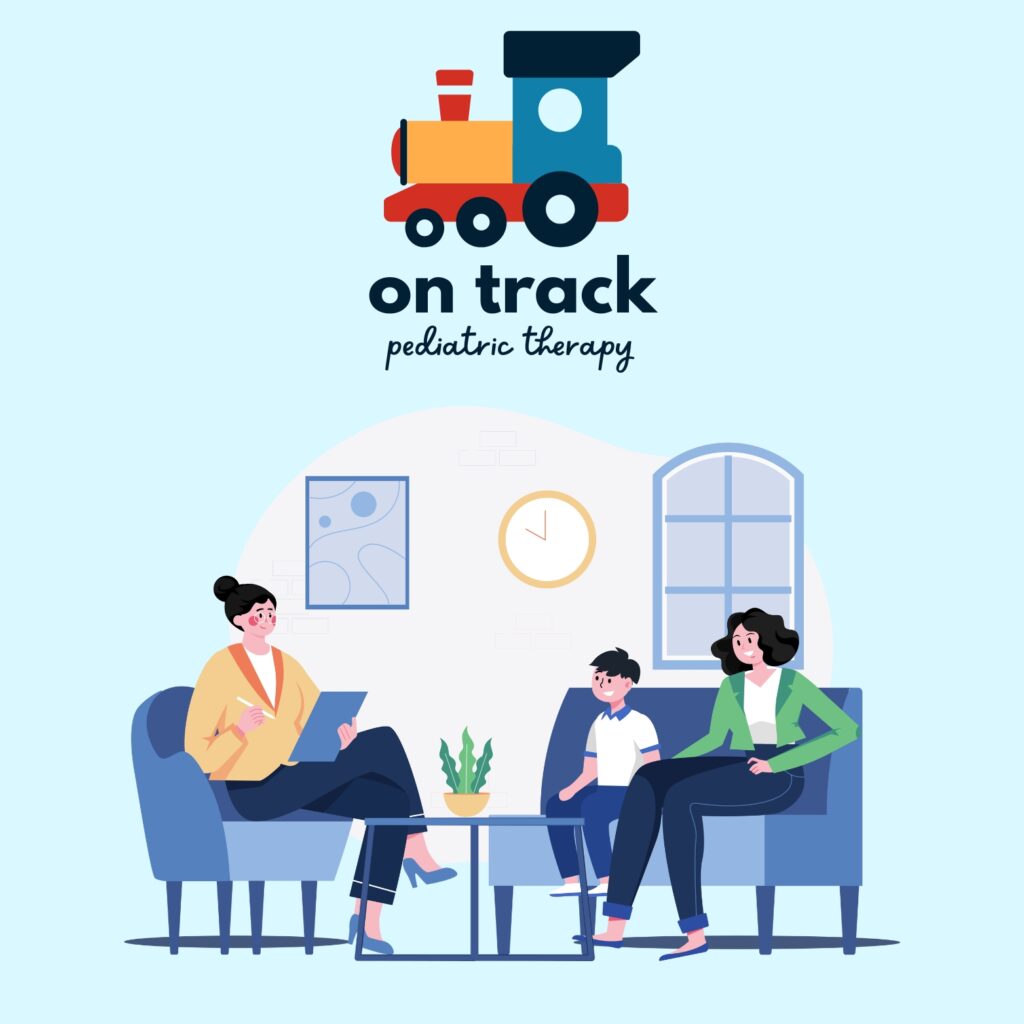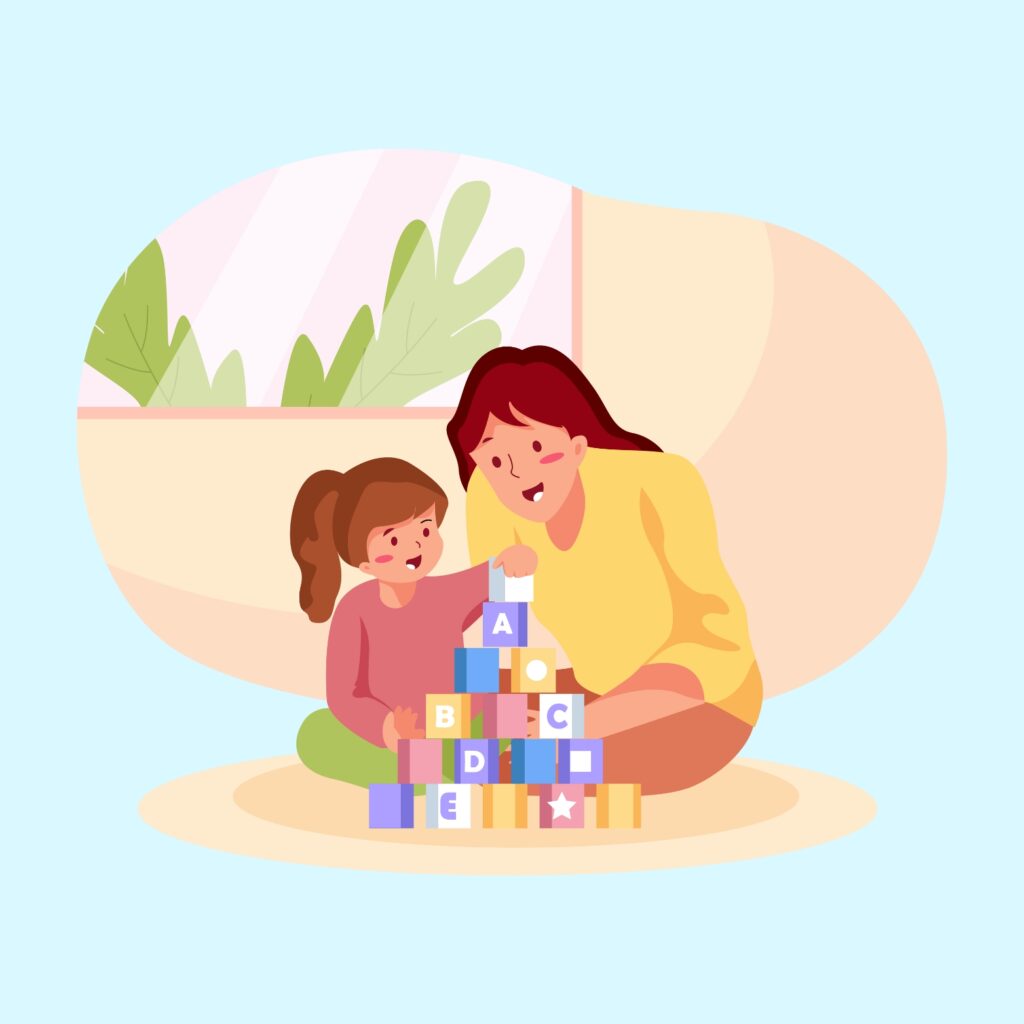Counseling
What is Counseling?
Counseling provides emotional and mental health support for children, helping them manage challenges, build resilience, and develop coping skills to navigate life’s stressors and emotions. Look below for specific areas of treatment.
Anxiety
Anxiety is a common mental health concern in children and adolescents, characterized by excessive worry, fear, or nervousness that can interfere with daily activities and overall well-being. While it’s normal for children to experience some anxiety as they grow and encounter new situations, persistent or intense anxiety may require professional support. Early intervention can help children manage their anxiety effectively, leading to healthier emotional development and improved coping skills.
Common signs of anxiety in children include:
- Excessive Worry: Children with anxiety may constantly worry about a wide range of topics, from school performance to family health, even when there is no immediate threat.
- Avoidance Behaviors: To avoid triggering their anxiety, children might avoid certain situations, such as social interactions, school, or new experiences.
- Physical Symptoms: Anxiety can manifest physically, leading to symptoms like headaches, stomachaches, fatigue, or difficulty sleeping.
- Restlessness and Irritability: Children with anxiety might seem overly restless, on edge, or easily irritated, struggling to relax or focus on tasks.
When to seek help:
If your child’s anxiety is impacting their ability to participate in everyday activities, such as attending school, interacting with peers, or enjoying hobbies, it may be time to seek professional support. A counselor can work with your child to develop coping strategies, build resilience, and reduce the intensity of their anxiety.
At On Track Pediatric Therapy, we provide a safe and supportive environment where children can explore their feelings and learn effective ways to manage anxiety. Through individual counseling sessions, we help children develop the skills they need to thrive emotionally and socially.
Depression
Depression in children and adolescents is a serious mental health condition that goes beyond occasional sadness or moodiness. It can affect how a child thinks, feels, and behaves, leading to persistent feelings of hopelessness, withdrawal from activities, and difficulties in daily functioning. While it can sometimes be challenging to recognize depression in young people, early identification and treatment are crucial for helping them regain their emotional well-being and happiness.
Common signs of depression in children include:
- Persistent Sadness or Irritability: Children with depression may seem sad or irritable most of the time, often without an obvious cause.
- Withdrawal from Activities: A child who was once active and engaged might lose interest in activities they previously enjoyed, including spending time with friends or family.
- Changes in Appetite or Sleep: Depression can lead to noticeable changes in eating and sleeping patterns, such as overeating, undereating, insomnia, or excessive sleeping.
- Low Energy and Fatigue: Children with depression often feel tired or lack energy, even after a full night’s sleep, making it difficult for them to participate in everyday activities.
- Feelings of Worthlessness or Guilt: Children may express negative thoughts about themselves, feeling like they are “not good enough” or that they are to blame for things beyond their control.
When to seek help:
If your child is showing signs of depression that last for more than a few weeks, or if their symptoms are interfering with their daily life, it’s important to seek professional support. Early intervention can make a significant difference in helping children manage their symptoms and improve their quality of life.
At On Track Pediatric Therapy, our counselors provide compassionate and evidence-based care to help children and adolescents overcome depression. Through individual counseling sessions, we work with your child to develop coping strategies, build self-esteem, and find joy in their lives again.
Attention-Deficit/Hyperactivity Disorder (ADHD)
Attention-Deficit/Hyperactivity Disorder (ADHD) is a neurodevelopmental condition that affects a child’s ability to focus, control impulses, and manage energy levels. Children with ADHD may struggle with staying on task, following directions, or regulating their behavior, which can impact their performance at school, their relationships, and their overall well-being. Early identification and support are essential to help children with ADHD develop effective coping strategies and succeed in their daily lives.
Common signs of ADHD in children include:
- Inattention: Children with ADHD may have difficulty focusing on tasks, following instructions, or staying organized. They might be easily distracted or frequently forgetful, even in activities they enjoy.
- Hyperactivity: This can manifest as excessive fidgeting, an inability to sit still, or constant movement. Children with ADHD may seem to be “on the go” all the time, struggling to remain seated during activities that require it.
- Impulsivity: Children with ADHD may act without thinking, interrupt others, or have trouble waiting their turn. This impulsiveness can lead to difficulties in social situations and may result in risk-taking behavior.
When to seek help:
If your child is exhibiting signs of ADHD that are impacting their school performance, social interactions, or family life, it’s important to seek professional guidance. Early intervention can provide the tools and strategies your child needs to manage their symptoms effectively and thrive in all areas of life.
At On Track Pediatric Therapy, we offer specialized counseling services to help children with ADHD develop skills in focus, organization, and self-regulation. Our counselors work closely with families to create individualized plans that support each child’s unique needs, helping them achieve their full potential.
Life Transitions
Life transitions, such as moving to a new school, dealing with family changes, or experiencing major life events, can be challenging for children and adolescents. These transitions often bring about significant adjustments and can impact a child’s emotional and behavioral well-being. Counseling during these times can help children navigate changes more smoothly and build resilience to adapt effectively to new circumstances.
Common life transitions and their impacts include:
- Starting School or Changing Schools: Adapting to a new educational environment can be stressful, leading to concerns about fitting in, academic performance, and social interactions.
- Family Changes: Events such as divorce, relocation, or the addition of a new family member can create feelings of instability, confusion, or loss.
- Major Life Events: Experiences such as the death of a loved one, serious illness, or financial changes can evoke strong emotional responses and affect a child’s sense of security.
When to seek help:
If your child is struggling to cope with a significant life transition or if their behavior and emotions are noticeably impacted, seeking counseling can provide them with the support they need. Counseling can help children process their feelings, develop coping strategies, and adjust to new circumstances in a healthy way.
At On Track Pediatric Therapy, we offer supportive counseling to help children and families navigate life transitions. Our counselors provide a safe space for children to express their emotions and work through changes, guiding them towards resilience and a positive adjustment to their new life situations.
Grief
Grief is a natural response to loss and can affect children and adolescents just as profoundly as it does adults. Whether dealing with the death of a loved one, the loss of a pet, or significant changes such as family separation, children may experience a range of emotions including sadness, confusion, and anger. Understanding and supporting a child through their grieving process is crucial for their emotional healing and development.
Common signs of grief in children include:
- Emotional Responses: Children may show sadness, anxiety, or anger, and their feelings may fluctuate frequently as they process the loss.
- Behavioral Changes: Grieving children might experience changes in behavior, such as withdrawal from activities, changes in sleep patterns, or regressive behaviors.
- Difficulty Expressing Feelings: Younger children, in particular, may struggle to articulate their emotions or may express their grief through play or drawings.
When to seek help:
If your child is struggling to cope with a significant loss or if their grief is affecting their daily life, seeking counseling can be beneficial. Professional support provides a safe space for children to express their feelings, understand their grief, and develop healthy coping strategies.
At On Track Pediatric Therapy, we offer compassionate counseling services to support children through their grieving process. Our counselors work with children and families to help them navigate their emotions, honor their loss, and find ways to heal and move forward.
Trauma
Trauma can have a profound impact on a child’s emotional and psychological well-being. Children may experience trauma from events such as abuse, neglect, accidents, or witnessing violence, and these experiences can significantly affect their behavior, emotions, and development. Addressing trauma early is crucial for helping children process their experiences and develop healthy coping mechanisms.
Common signs of trauma in children include:
- Recurrent Memories or Nightmares: Children may have distressing thoughts, flashbacks, or nightmares related to the traumatic event.
- Behavioral Changes: Trauma can lead to changes in behavior, such as increased aggression, withdrawal from activities, or regressive behaviors.
- Emotional Difficulties: Children may exhibit heightened anxiety, fearfulness, sadness, or mood swings. They might also struggle with trust and attachment issues.
- Physical Symptoms: Trauma can manifest physically as headaches, stomachaches, or other stress-related ailments.
When to seek help:
If your child is exhibiting signs of trauma that are impacting their daily life or emotional well-being, professional counseling can provide essential support. Early intervention helps children process their experiences, develop resilience, and regain a sense of safety and stability.
At On Track Pediatric Therapy, we offer specialized counseling to support children who have experienced trauma. Our therapists provide a safe and empathetic environment where children can explore their feelings, learn coping strategies, and work towards healing and recovery.

